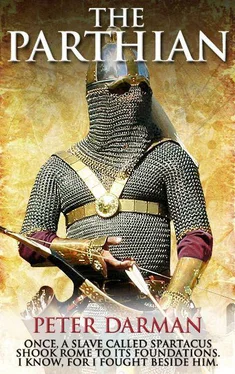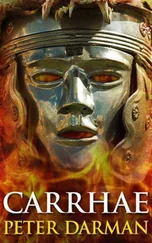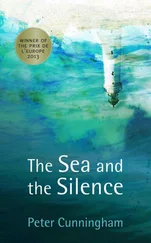Peter Darman - The Parthian
Здесь есть возможность читать онлайн «Peter Darman - The Parthian» весь текст электронной книги совершенно бесплатно (целиком полную версию без сокращений). В некоторых случаях можно слушать аудио, скачать через торрент в формате fb2 и присутствует краткое содержание. Год выпуска: 2011, Жанр: Исторические приключения, на английском языке. Описание произведения, (предисловие) а так же отзывы посетителей доступны на портале библиотеки ЛибКат.
- Название:The Parthian
- Автор:
- Жанр:
- Год:2011
- ISBN:нет данных
- Рейтинг книги:4 / 5. Голосов: 1
-
Избранное:Добавить в избранное
- Отзывы:
-
Ваша оценка:
- 80
- 1
- 2
- 3
- 4
- 5
The Parthian: краткое содержание, описание и аннотация
Предлагаем к чтению аннотацию, описание, краткое содержание или предисловие (зависит от того, что написал сам автор книги «The Parthian»). Если вы не нашли необходимую информацию о книге — напишите в комментариях, мы постараемся отыскать её.
The Parthian — читать онлайн бесплатно полную книгу (весь текст) целиком
Ниже представлен текст книги, разбитый по страницам. Система сохранения места последней прочитанной страницы, позволяет с удобством читать онлайн бесплатно книгу «The Parthian», без необходимости каждый раз заново искать на чём Вы остановились. Поставьте закладку, и сможете в любой момент перейти на страницу, на которой закончили чтение.
Интервал:
Закладка:
I look around. Vistaspa was supervising the reduction of the last pockets of resistance. My father, bareheaded, was leaning on his sword, Gafarn dressing a wound to his neck. I sheathed my sword and went over to him. We met and embraced.
‘Are you hurt, father?’
‘It’s nothing, I was lucky,’ he replied.
‘That’s why we have helmets,’ said Gafarn. ‘If you don’t wear one, what do expect?’ He was expertly stitching the two sides of the cut together, oblivious to my fathers’ wincing as he did so.
‘Be quiet and do your job,’ my father barked.
‘Of course, majesty,’ replied Gafarn. ‘And then I’ll get your helmet so you can put it on.’
‘I sometimes wonder if you know that you are a slave.’
Gafarn had been a slave in the royal household since he was five. He was found wandering among the dead and dying when my father’s father, King Sames, had attacked and routed a Bedouin tribe who had been raiding Hatra’s borders. My father had taken the young boy back to the city and gave him to me as a playmate. The same age, we grew up together and Gafarn, a low-born slave, became like a brother to me, the more so when my mother and father had no more boys of their own. He was brave and quick-witted, and became well liked in the palace. My father had him tutored in reading and writing, and although he was forbidden to train as a cataphract, he and I learned archery together, a skill at which he excelled.
Vistaspa marched up and one of his men threw an injured, black-clad figure to the ground. ‘We’ve killed most of them. A few got away. They slit the throats of our guards on the perimeter. That’s how they got so close. The only prisoner we’ve got so far is this one.’
‘Our losses?’ asked my father.
‘Twenty dead, about the same wounded. A few camels slain.’
My father brushed Gafarn away as my servant finished his medical duties. My father stood before the prisoner.
‘Who sent you?’
The prisoner, a scruffy looking individual with dirty, unkempt hair, chuckled at my father, to reveal a row of black teeth and rotting gums. Vistaspa picked up a broken spear shaft and hit the man hard on the side of his face, sending him sprawling to ground. He was yanked back onto his knees, his mouth bloody from the blow.
‘I ask you again. Who sent you?’ The prisoner spat at my father, prompting another blow to the side of the face from Vistaspa, who then drew his dagger, grabbed the man’s right arm and cut off his thumb. The prisoner screamed, and Vistaspa again clubbed him the ground. The loss of another thumb and all of his teeth failed to yield any information from the hapless man. Perhaps he didn’t know anything, perhaps he was just one of a ragged band of raiders who attacked us, but my father was convinced that he and his comrades had been sent to attack and kill us. When dawn broke the next morning the man was still alive, so we nailed him to a tree, then broke camp to head south. We were tired, cold and hungry, having stood to arms all through the night in case we were attacked again. But no assault came, so we tended to our wounded, consigned our dead to a funeral pyre and rode south back to Hatra. We left the enemy dead where they fell, fifty of them, though my father ordered all the bodies to be decapitated. The heads were impaled on the enemy’s spears that had been stuck in the ground, to form a grisly forest. I pulled my cloak around me as we rode away from the scene of slaughter. Our pace was slow as my father ordered all of us to wear our full armour in case we were attacked again. No attack came, and as the day wore on the sun rose in the sky to warm our bodies and raise our spirits. We were going home.
Chapter 2
It took us seven days to reach Hatra. After the first two days we relaxed our guard when it became apparent that no one was trailing us. My father’s mood began to lighten as we neared home, the more so when scouts rode in to inform us that the army had reached Hatra safely and the city was excited about our victory. Hatra, how that name filled me with pride. Sandwiched between the Tigris and Euphrates, the Kingdom of Hatra was the eastern shield of the Parthian Empire. As well as being a mighty fortress, it was also a flourishing trading centre through which caravans travelling both east and west passed. From the Orient the caravans brought furs, ceramics, jade, bronze objects, lacquer and iron. Caravans heading towards the east carried gold and other precious metals, ivory, precious stones, and glass. Many of these goods were bartered for others along the way, and objects often changed hands several times. Yet the most precious commodity of all was silk, the valuable material that was said to have come to earth as a gift from the Goddess of Silk to Lady Hsi-Ling-Shih, wife of the Yellow Emperor, who was said to have ruled the Orient three thousand years before our time.
There were many routes from Africa, Syria and the Roman Empire to the East, but the most important ones passed through the Kingdom of Hatra, and the rulers of Hatra had grown rich on the caravans that travelled through their territory, each one paying a toll to secure safe passage. At first this toll paid for a troop of horsemen to escort the caravan from one end of the kingdom to the other, to provide protection against the many gangs of bandits that infested the desert regions. But this was deemed a waste of money, as there was always a multitude of caravans, which required a huge army to guard. So the kings, my ancestors, organised massive sweeps of the kingdom to destroy the bandits. A combination of bribery, fire and sword eradicated their threat, and since those times the severest penalties had been in place for banditry and theft. The bandits and their families were hunted down and slaughtered without mercy, the bodies being staked out in the desert or impaled on stakes beside the road as a warning to others. It worked. Now, few bandits dared to show their face in the Kingdom of Hatra, its example being followed by the other rulers in the empire, for without trade the Parthian Empire would quickly wither and die.
Now the caravans, glad to have safe passage, paid their tolls and we grew rich. Some kings spent their wealth on an indolent way of life, such as King Darius, but others, like my father, built strong defences and large armies to protect what they had. For the Romans in the west and the Asiatics in the east were like hungry wolves when they turned their gaze to Parthia. My father had once told me, as his father had told him, ‘if you want peace, my son, prepare for war’. And so it was. Throughout the kingdom stone forts protected the trade routes and deterred aggressors. These forts were simple stone structures, with a garrison of twenty-five horse archers, a quarter of a company. They had one entrance, four watch towers at each corner and were austere in the least. But they served their purpose and made it all but impossible for bandits or enemy troops to operate within the kingdom with impunity.
‘It will be good to see your mother again,’ mused my father as I rode beside him on our way south. It was the first time he had mentioned her name since we had left home.
‘Yes, father.’
‘A man without a good woman beside him is an empty shell.’ He looked at me. ‘We will have to find you a wife soon, my son.’
‘Yes, father,’ I replied with little enthusiasm. Royal marriages were used to cement alliances and secure kingdoms; the wishes of those getting married were often of little or no concern.
‘Perhaps the Princess Axsen of Babylon. That would make a good alliance, though if she’s as fat as her father you’ll need a good cook to keep her happy.’
My spirits sank. ‘Yes, father.’
Our conversation was interrupted by Vistaspa galloping up and halting before my father. He saluted. ‘Message from the city, sire.’
Читать дальшеИнтервал:
Закладка:
Похожие книги на «The Parthian»
Представляем Вашему вниманию похожие книги на «The Parthian» списком для выбора. Мы отобрали схожую по названию и смыслу литературу в надежде предоставить читателям больше вариантов отыскать новые, интересные, ещё непрочитанные произведения.
Обсуждение, отзывы о книге «The Parthian» и просто собственные мнения читателей. Оставьте ваши комментарии, напишите, что Вы думаете о произведении, его смысле или главных героях. Укажите что конкретно понравилось, а что нет, и почему Вы так считаете.












